College Note-Taking System
College Note-Taking System

Having cohesive and effective notes is one of the key skills I think one should have, especially in an academic setting. When you’re receiving a ton of information each day, you want to be able to keep track of that and remember what you’ve learned. I’m constantly trying out ways to make my note-taking more effective and tailored to my needs. Here’s what my note-taking system looks like so far.
Quick note: click on the images for better quality!
Class Notes
Taking notes in class is an invaluable way to keep track of the new knowledge you’ve gained. However, depending on the mode in which the lecture material is conveyed, I take my notes differently. Here’s a summary of how I take my notes for each type of lecture, as well as some examples from the classes I’m taking now.

Slides (e.g. Macroeconomics)
Macroeconomics is a class in which you should be able to intuitively understand a lot of concepts but also remember a lot of things. Because of this, I’ve tailored my note-taking method and habits to achieve that goal.
I write my notes by hand because handwriting is more effective in committing things to memory.
As for what I actually do - and this is what I’ve done for other classes in which the professor/lecturer uses slides:
Read/skim over the slide.
Read each bullet point as the professor goes through them.
Copy it down if it’s straightforward or write it down in a structure and diction that I understand better (not necessarily in my own words - sometimes it’s just restructuring, e.g. splitting things up or joining different bullet points together).
Take note of any other important details the professor says about any particular point unless I think it’s intuitive or common sense.
Here’s an example from a Macroeconomics lecture.

Oral Presentation (e.g. Anthropology)
During classes in which the professor just speaks and doesn’t use much visual material, I listen before I write instead of attempting to write down every single detail mentioned.
Also, I type up my notes instead of handwriting them since the exams are all open-book so I don’t really have to commit things to memory.
Here’s what I do:
Listen for a cue that tells you what this particular part of the lecture will be about (and write it as a heading).
Write down main ideas and their supporting facts/details. If the facts/details come before the main ideas, then I’d usually draw an arrow.
Write down ideas and details from readings in their own section/subsection.
Sometimes, my professor also shows short clips in class, in which case I’d write down the message that I think the clip was meant to convey, as well as things that the professor points out that I didn’t think of on my own.
I’d also look up concepts/ideas/people/events (in real time) that are important to my understanding of the lecture material.
Here’s an example of a Google Docs document from an Anthropology lecture.

Demonstrations and Sample Problems (e.g. Computer Science)
Classes in which the lecture is mainly going through demos and problems are kind of tricky, because you want to know and understand what the professor is doing, but you also don’t want to be writing down every single step that’s being executed. Here’s what I’ve found to be the most effective so far:
If there are any, I import the slides/handout onto OneNote and annotate directly on the slide. If not, I just write down things like definitions, important concepts, and syntax-related things.
I focus on understanding what the professor’s doing with the demo or problem.
I then summarize the steps they took and
Write down comments and points they brought up, e.g. common errors, desirable habits/practices.
Also, these kinds of classes are usually classes in which you’d learn better when you actually do problems yourself, so I definitely learn more when I do assignments and labs than when I’m in class.
Here’s an example from a Web Programming lecture.

Here’s one from an Object Oriented Programming and Data Structures class. I often draw things to help me visualize the general points.

Rewritten Notes
My rewritten notes have definitely changed a lot since high school. Since most of my classes don’t require a lot of memorization, I organize my notes in such a way that they’d be easy to index or find information from. Here are some of the ways I do that:
Establishing a Visual Hierarchy
Having a well-defined hierarchy helps me flow through my notes really well as i read them. It helps me organize information like a mind map without actually making a mind map - I know the big topics and their subtopics and sub-subtopics and details … basically it’s easier to see how these ideas fit together.
But why don’t I just make mind-maps? See, the thing is, a lot of my notes require sequential or linear thinking, e.g. in macroeconomics it might be the sequence of events following a change in the economy, or in computer science it might be a general algorithm for solving a certain type of problem, or it might be proving or deriving a certain equation. These sorts of things just generally don’t work well with mind maps. Instead, establishing a visual hierarchy in my notes helps me organize different ideas while retaining the linear nature of the information.
Here’s what the hierarchy looks like.

Here is an example from my Web Programming class, which is a purely project-based class, so no prelims or exams. As you can see, I draw rectangles around important terminology so that I can easily find them while I’m working on a project. I also include examples from in-class activities as well as notes on syntax so I have an idea of how to implement certain things. These examples and notes are further grouped by terminology/concept.

Structuring Them for Easier Flow
My syllabi for my college courses are nowhere near as detailed as the syllabi for my high school courses - those of you who take/have taken Cambridge exams would know. In college, my syllabi are only lists of topics and not what you’re expected to know for each topic. Because of this, I have to find a way to arrange information so that I can achieve the most comprehensive and cohesive understanding of that topic, i.e. so that the flow of my notes is similar to the flow of my thinking.
For example, in my economics notebook, I like to have the details first (e.g. the separate markets: the goods market, the assets market, and the labor market) and then the big picture later (IS-LM-FE). Some people prefer the other way around - seeing the big picture and then going into the details - which I can understand and have done myself for certain topics.

Making Use of Proximity and Spacing
I very much dislike notes without good use of spacing and grouping things together. Keeping related ideas in visual proximity helps your brain (or at least mine) organize this information. It’s also a lot easier to find things and visualize your notes when they’re not just a huge chunk of text.

One thing I should probably mention is that I don’t use colored pens anymore because it just takes a lot of time to switch pens and think of a color palette. I also don’t have much use for it. In the past, I used color to help me memorize and group things in different categories, but now, I’ve found that there aren’t a whole lot of categories I need to keep track of, and when I do, I can do so with just one pen but changing the style of the text.
And that’s what my note-taking system currently looks like. It’s working well so far, but I still think there are other things I could try out that might be a better fit.
So yeah, hope this was helpful, and as always, feel free to drop an ask if you have any questions, or even if you have any suggestions or would like to share your note-taking system. Have an awesome week!
More Posts from Charlies-day-off and Others
24 Invaluable Skills To Learn For Free Online This Year
Here’s an easy resolution: This stuff is all free as long as you have access to a computer, and the skills you learn will be invaluable in your career, and/or life in general.
1. Become awesome at Excel.
Chandoo is one of many gracious Excel experts who wants to share their knowledge with the world. Excel excellence is one of those skills that will improve your chances of getting a good job instantly, and it will continue to prove invaluable over the course of your career. What are you waiting for?
2. Learn how to code.
littleanimalgifs.tumblr.com
Perhaps no other skill you can learn for free online has as much potential to lead to a lucrative career. Want to build a site for your startup? Want to build the next big app? Want to get hired at a place like BuzzFeed? You should learn to code. There are a lot of places that offer free or cheap online coding tutorials, but I recommend Code Academy for their breadth and innovative program. If you want to try a more traditional route, Harvard offers its excellent Introduction to Computer Science course online for free.
3. Make a dynamic website.
You could use a pre-existing template or blogging service, or you could learn Ruby on Rails and probably change your life forever. Here’s an extremely helpful long list of free Ruby learning tools that includes everything from Rails for Zombies to Learn Ruby The Hard Way. Go! Ruby! Some basic programming experience, like one of the courses above, might be helpful (but not necessarily required if you’re patient with yourself).
4. Learn to make a mobile game.
If you’re not interested in coding anything other than fun game apps, you could trythis course from the University of Reading. It promises to teach you how to build a game in Java, even if you don’t have programming experience! If you want to make a truly great game, you might want to read/listen up on Game Theory first.
5. Start reading faster.
Spreeder is a free online program that will improve your reading skill and comprehension no matter how old you are. With enough practice, you could learn to double, triple, or even quadruple the speed at which you read passages currently, which is basically like adding years to your life.
6. Learn a language!
With Duolingo, you can learn Spanish, French, Portuguese, Italian, or English (from any of the above or more). There’s a mobile app and a website, and the extensive courses are completely free.
Full disclosure: BuzzFeed and other websites are in a partnership with DuoLingo, but they did not pay or ask for this placement.
7. Pickle your own vegetables.
Tired of your farmer’s market haul going bad before you use it all? Or do you just love tangy pickled veggies? You too can pickle like a pro thanks to SkillShare and Travis Grillo.
8. Improve your public speaking skills.
You can take the University of Washington’s Intro to Public Speaking for free online. Once you learn a few tricks of the trade, you’ll be able to go into situations like being asked to present at a company meeting or giving a presentation in class without nearly as much fear and loathing.
9. Get a basic handle of statistics.
UC Berkeley put a stats intro class on iTunes. Once you know how to understand the numbers yourself, you’ll never read a biased “news” article the same way again — 100% of authors of this post agree!
10. Understand basic psychology.
Knowing the basics of psych will bring context to your understanding of yourself, the dynamics of your family and friendships, what’s really going on with your coworkers, and the woes and wonders of society in general. Yale University has its Intro to Psychology lectures online for free.
11. Make your own music.
Step one: Learn how to play guitar: Justin Guitar is a fine and free place to start learning chords and the basic skills you’ll need to be able to play guitar — from there, it’s up to you, but once you know the basics, just looking up tabs for your favorite songs and learning them on your own is how many young guitar players get their start (plus it’s an excellent party trick).
Step two: A delightful free voice lesson from Berklee College Of Music.
Step three: Have you always thought you had an inner TSwift? Berklee College of Music offers an Introduction to Songwriting course completely for free online. The course is six weeks long, and by the end of the lesson you’ll have at least one completed song.
Step four: Lifehacker’s basics of music production will help you put it all together once you have the skills down! You’ll be recording your own music, ready to share with your valentine or the entire world, in no time!
12. Learn to negotiate.
Let Stanford’s Stan Christensen explain how to negotiate in business and your personal life, managing relationships for your personal gain and not letting yourself be steamrolled. There are a lot of football metaphors and it’s great.
13. Stop hating math.
If you struggled with math throughout school and now have trouble applying it in real-world situations when it crops up, try Saylor.org’s Real World Math course. It will reteach you basic math skills as they apply IRL. Very helpful!
14. Start drawing!
All kids draw — so why do we become so afraid of it as adults? Everyone should feel comfortable with a sketchbook and pencil, and sketching is a wonderful way to express your creativity. DrawSpace is a great place to start. (I also highly recommend the book Drawing on the Right Side of the Brain if you can drop a few dollars for a used copy.)
15. Make your own animated GIF.
BuzzFeed’s own Katie Notopoulos has a great, simple guide to making an animated GIF without Photoshop. This is all you need to be the king or queen of Tumblr or your favorite email chains.
16. Appreciate jazz.
reddit.com
Have you never really “gotten” jazz? If you want to be able to participate in conversations at fancy parties and/or just add some context to your appreciation of all music, try this free online course from UT Austin.
17. Write well.
Macalester College’s lecture series is excellent. If you’re more interested in journalism, try Wikiversity’s course selection.
18. Get better at using Photoshop.
Another invaluable skill that will get you places in your career, learning Photoshop can be as fun as watching the hilarious videos on You Suck At Photoshop or as serious as this extensive Udemy training course (focused on photo retouching).
19. Take decent pictures.
Lifehacker’s basics of photography might be a good place to start. Learn how your camera works, the basic of composition, and editing images in post-production. If you finish that and you’re not sure what to do next, here’s a short course on displaying and sharing your digital photographs.
20. Learn to knit.
Instructables has a great course by a woman who is herself an online-taught knitter. You’ll be making baby hats and cute scarves before this winter’s over!
21. Get started with investing in stocks.
If you are lucky enough to have a regular income, you should start learning about savings and investment now. Investopedia has a ton of online resources, including this free stocks basics course. Invest away!
22. Clean your house in a short amount of time.
Unf$#k Your Habitat has a great emergency cleaning guide for when your mother-in-law springs a surprise visit on you. While you’re over there, the entire blog is good for getting organized and clean in the long term, not just in “emergencies.” You’ll be happier for it.
23. Start practicing yoga.
Most cities have free community classes (try just searching Google or inquiring at your local yoga studio), or if you’re more comfortable trying yoga at home, YogaGlohas a great 15-day trial and Yome is a compendium of 100% free yoga videos. If you’re already familiar with basic yoga positions but you need an easy way to practice at home, I recommend YogaTailor’s free trial as well.
24. Tie your shoelaces more efficiently.
It’s simple and just imagine the minutes of your life you’ll save!

CLASSICAL
The old masters. I tried not to include most opera composers, since singing/lyrics interfere with concentration. Most of these playlists are at least an hour long:
Baroque (prancing through the flowers with royalty):
Albinoni
Bach
Corelli
Handel
Guerre
Purcell
Scarlatti
Telemann
Vivaldi
Classical (sipping tea with royalty while listening to their woes and gossip):
Beethoven
Haydn
Mozart
Paganini
Romantic (watching a heartfelt, teary-eyed scene in a soap opera):
Berlioz
Bizet
Borodin
Brahms
Bruch
Bruckner
Chopin
Dvorak
Field
Franck
Gade
Grieg
Liszt
Mendelssohn
Rachmaninov
Rimsky-Korsakov
Rubenstein
Saint-Saëns
Schubert
Robert Schumann
Clara Schumann
Smetana
Strauss II
Tchaikovsky
Wagner
Weber
Impressionistic (stargazing in an open field at midnight):
Debussy
Ravel
Late Romantic/Early Modern (dramatically confessing your love in the pouring rain):
Albéniz
Beach
Chaminade
de Falla
Dukas
Elgar
Fauré
Glazunov
Mahler
Respighi
Satie
Sibelius
Strauss
Vaughan Williams
Modern (these get sub-categories because they’re so different):
Emotional and moving
Barber
Bartok
Glass
Holst
Ives
Kabalevsky
Kodaly
Poulenc
Schoenberg
Trimble
We’re off on an epic adventure!
Copeland
Grofe
Prokofiev
Tailleferre
Dramatic theme for every super villain ever
Adams
Musgrave
Shostakovich
Stravinsky
Tower
Curious and off-putting, but hypnotic
Cage
Higdon
Rodrigo
Jazz hands and big city lights
Gershwin
Joplin
Milhaud
Still
Long, random playlists: (1) (2) (3) (4) (5) (6) (7) (8)
Youtube Channels:
Classical Music
The Spirit of Classical Music
TopClassicalMusic
naxosorchestral
Classical Music11
There’s also playlists on Spotify (just go to Browse > Genres & Moods > Classical).
__________________________________________
CONTEMPORARY CLASSICAL
Sometimes the old masters are too stuffy. I get it. Have some more long playlists from a few of my favorite contemporary artists:
Piano
Yiruma
Michael Nyman
Ludovico Einaudi
Brian Crain
Jim Brickman
Ryuichi Sakamoto
Joe Hisaishi
Yann Tiersen
Violin
Itzhak Perlman
Vanessa Mae Storm
Emilie Autumn (electric)
David Garrett
__________________________________________
EDM
Maybe you don’t like classical at all. That’s fine, too. Here’s some wub-wub to get your mind on track:
Aggressive & Intense (dubstep, deathstep, metalstep, etc)
Long, random playlists: (1) (2) (3) (4) (5) (6) (7) (8)
Youtube Channels:
Glitch Mob
Excision
TheSupremeKronus
Chill & Melodic (chillstep, deep house, melodic dubstep)
Long, random playlists: (1) (2) (3) (4) (5) (6) (7) (8)
Youtube Channels:
Pulse8Music
ChillYourMind
Fluidified
Upbeat & Dancy (electro house, club music, more chillstep)
Long, random playlists: (1) (2) (3) (4) (5) (6) (7) (8) Youtube Channels:
Madeon
Paul van Dyk
Omnitica
There are countless other Youtube channels and mixes. You can also find some playlists on Spotify (Browse > Genres & Moods > Electronic).
__________________________________________
INSTRUMENTAL COVERS OF POPULAR SONGS
Here are a few channels to check out if you’re starting from nowhere:
Piano
Miri Lee 이미리 Pianistmiri - pop, r&b, rap, some classical, rock, and k-pop
David Sides - pop, r&b, rap, some rock
oysterlovers - pop, r&b, rap, some classical and rock
The Theorist - pop, r&b, and rap
TheUnsungHeroine - pop & electronic/dubstep
YourPianoCover - mostly pop, a few rap
Steve Siu Piano - pop, country, classical, some rock and rap
Yoonha85TV - pop, rap, r&b, some k-pop
Brooklyn Duo (piano & cello) - pop
ThePianoGuys (piano & cello) - pop, r&b, classical, rock
Hour-long, yearly pop playlists by oysterlovers: 2013, 2014
Yearly pop medleys by AlexTanMusic: 2012, 2013, 2014
Violin
The Mad Violinist & SCO - pop, r&b, rap, dubstep
Lindsey Stirling - pop, r&b, rap, soundtracks, classical
Momento - pop & rock
Josh Vietti - pop, r&b, rap, rock, classical
JuNCurryAhn - pop, k-pop, classical, soundtracks
David Wong - pop, r&b, rock, rap
Bryson Andres - pop, r&b, rock, electronic
JasonYangViolin - pop, rock, rap, soundtracks
Of course, there are countless people who don’t have huge channels and maybe only a cover or two. The search bar is your friend. And don’t forget to make a playlist!
__________________________________________
VIDEO GAME SOUNDTRACKS
Think about it, there are tons of people whose only job is to get the atmosphere of a game right by carefully composing the right music. And there are plenty of games with beautiful music. I love these playlists:
Remember Me (brilliant mix of electronic and classical)
Papo & Yo (relaxing and tropical)
Rayman Origins (springy, lighthearted, and amazing)
Rayman Legends (energetic, goofy, and wonderful)
Dark Cloud 2/Dark Chronicle (beautiful, bouncy, heart-racing)
To The Moon (dreamy and moving)
Kingdom Hearts (gorgeous, epic, breathtaking)
Mirror’s Edge (soothing and mechanical)
Hamtaro: Ham-Hams Unite (adorable 8-bit)
Alice: Madness Returns (odd, creepy, and carnival-esque)
Journey (peaceful and atmospheric)
Child of Light (melancholic and powerful)
Trine (epic and mystical)
The Vanishing of Ethan Carter (mysterious and haunting)
Valiant Hearts (pretty and heartbreaking)
Walking Dead Season 1 (depressing and beautiful)
Braid (relaxing, Celtic vibes)
Botanicula (breathy, vibrant, playful)
Machinarium (earthy, futuristic, energetic)
Long, random playlists: (1) (2) (3) (4) (5) (6) (7) (8) (9) (10)
Youtube Channels:
VGameOSTs
SoundtrackVideoGame
Video Game Soundtracks
__________________________________________
MOVIE SOUNDTRACKS
Just like video games, movies rely heavily on music to set the mood for the audience. Here are some of my favorite playlists:
Studio Ghibli
Spirited Away
Howl’s Moving Castle
Princess Mononoke
Nausicaa of the Valley of the Wind
Kiki’s Delivery Service (x)
Castle in the Sky
My Neighbor Totoro
Ponyo
Porco Rosso
The Wind Rises
Grave of the Fireflies
random playlists: (1) (2) (3)
Classic Disney piano covers (1) (2)
Lord of the Rings
The Fellowship of the Ring
The Two Towers
The Return of the King
Amelie
How to Train Your Dragon
How to Train Your Dragon 2
Coraline
The Secret of Kells
The Tale of Princess Kaguya
The Piano
Schindler’s List
Harry Potter
Philosopher’s/Sorcerer’s Stone
Chamber of Secrets
Prisoner of Azkaban
Goblet of Fire
Order of the Phoenix
Half-Blood Prince
Deathly Hallows pt 1
Deathly Hallows pt 2
You can also view a full list of Grammy Award-winning soundtracks here
__________________________________________
ANIME SOUNDTRACKS
You’ll look like weeaboo trash, but at least you’ll be concentrating. You might need to skip a few tracks here and there if they have lyrics (that messes up my concentration, at least). That said, here’s some recommended playlists:
Elfen Lied (flowy and pretty)
Tokyo Ghoul √A (powerful, electronic, heart-wrenching)
Samurai Champloo (funky, hip-hop, soothing, amazing)
Hellsing Ultimate (epic, funky, aggressive, but also sad and moving)
Death Note (emotional, edgy, rock n’ roll)
Attack on Titan (sometimes emotional & harrowing, sometimes epic & gritty)
Ghost in the Shell (hollow, lonely, mysterious)
Ghost in the Shell: Stand Alone Complex (gritty, funky, upbeat)
Blue Gender (funky, badass, intense)
Mnemosyne (jazzy, upbeat)
Cowboy Bebop (sometimes smooth jazz, sometimes wild & funky)
Neon Genesis Evangelion (more smooth jazz)
Fishugi Yuugi (emotional, romantic)
Sailor Moon (happy & upbeat)
Cardcaptor Sakura (lighthearted, bubbly)
Inuyasha (epic, emotional, inspiring)
Long, random playlists: (1) (2) (3) (4) (5) (6) (7) (8) (9) (10)
Youtube Channels:
Dolan Zoldhost
EpicAnimeRequiem
Epic San
MrAnimeSoundtrack
Erolox OST
__________________________________________
Like I said, this isn’t a complete list but hopefully a good jumping-off point. Feel free to add to areas with your own suggestions. Have fun listening and go be productive!

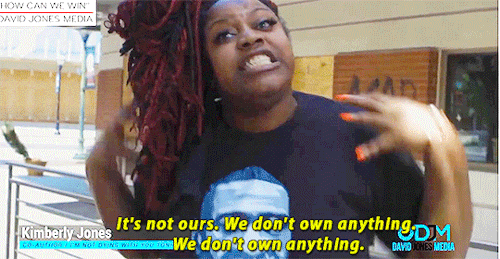
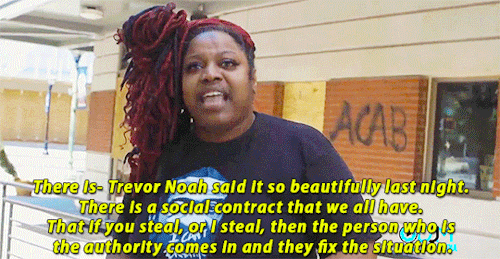
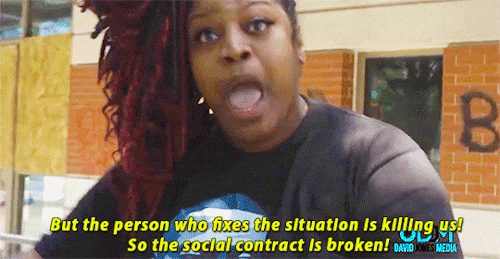
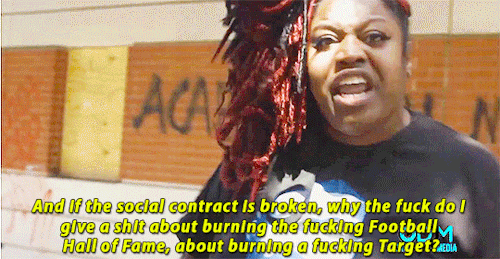
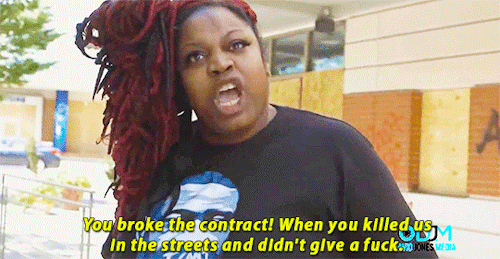
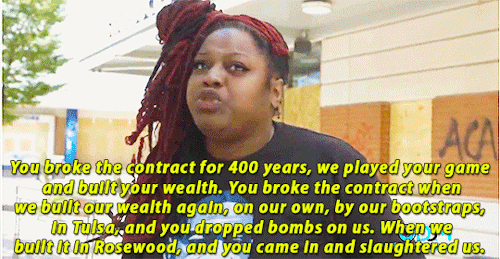

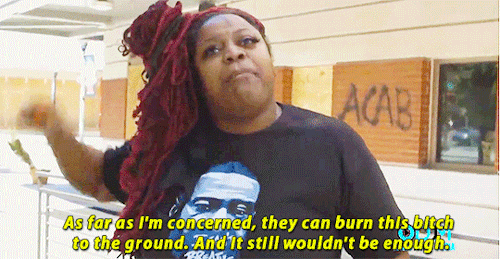
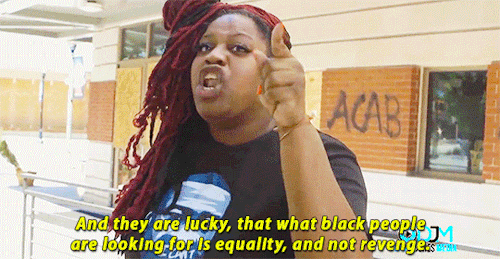
You know, sometimes all you need is twenty seconds of insane courage. Just literally twenty seconds of just embarrassing bravery. And I promise you, something great will come of it.
We Bought a Zoo (2011)
Literally do your work as soon as you know it exists. If you get homework, do it during your free or when you get home or on the train if you really want to, on the day you get it. Just got set an assignment? Get the draft done that weekend. It doesn’t have to be amazing and absolutely ready to send in, it just needs to exist. Just got sent an email? Reply when you see it. If you’re not sure how to response to it, write Dear (), leave a gap and then write Regards () and keep that in your drafts. Set a reminder on your computer or write the reminder on a sticky note that you’ve got that sitting in your drafts and you need to send it off in the next 24 hours. Need to clean your room? Don’t spend time thinking or planning how you’re going to clean it or how you’re going to change up the space in the process, just pick stuff up and put it where it should be until everything’s in order. Done. Seriously dude, when a task arises as an issue, tackle it as soon as you realise it exists. Remember, it doesn’t need to be amazing it just needs to be done. So, when the due date of the task creeps closer, you can go back, work with what you have and make it the quality you want it to be.

Based on this post
“Failure is the key to success"
We’ve all heard motivational quotes similar to the above. While they serve as an important reminder on our rough days, sometimes we need something more than hugs and well wishes to get us through.
You’ve failed. What next?
Let it out: Step back. Take a few days off. Shower, catch up on that sleep debt. Remind yourself of who you are outside your academic study. Catch up with a friend for coffee (or just get some coffee). Watch a movie, marathon a tv series, built a pillow fort, tumblr, youtube spiral - anything. Because your academic life is only one piece (of varying size) of a larger puzzle. Remind yourself of who you are outside of university/ school.
Formal/ Informal Avenues of Review : Check your school/university’s academic policies. Are you eligible to resit the exam? Were there any extenuating circumstances that affected your performance (e.g. medical, emergency etc)? Are you eligible to seek an adjustment to your marks? If you’re eligible, what documentation will you need to provide? Which staff member can you contact to follow up your application? If you’re not eligible, are there any other members of staff or advisor (e.g. course advisors, councillors, student leaders) you can discuss your circumstances with?
Reset, Recuperate, Retake: It is likely that you will need to repeat or retake the class/ assessment/ unit. That’s ok. Seek feedback from your lecturer/ tutor or teacher. Consolidate your strong areas. Focus on the areas of the course you find challenging. Use the feedback given to target your study time!
Same Shit, Different Day: While the content may be the same, using a different method to study may be more effective ( see below)
Same content? Change it up!
flashcards by @illolita,
colour coding
audio recordings by @riseandstudy,
mindmaps by @reviseordie
sticky notes @etudiance
Change your study habits by @whilwheaton
Practice past papers. (see below).
Something to help you get back up on your feet
Videos and speeches to help you push through
On being wrong
On regret
On making difficult choices
On what the fuck to do with your life
On “falling behind”
On rushing things
On success
On motivation - for recent graduates
On perspective by @fishingboatproceeds
Just do it
Find songs to cry and scream to
8tracks and this spotify playlist
Classical music for any mood by @violaboss
Find something on the Nostalgia Machine
Infinite Jukebox
Make your own music
IDGAF by Watsky “Let me tell you about my GPA, four-O, straight A’s and my- idgaf!”
Something to help you fucking laugh or smile
Honest Trailers
Dance Mashup
Thomas Sanders @thatsthat24
This kid and this kid
Goat Remixes
This vine
Need more?
Cute flash games (+amazing background music)
Motivation wall by @study-ings
Mug Cake by @sortedfood
Calming Manatee
Ultimate motivation song
SCREAM INTO THE VOID (personal favourite)
Things to remember
Oi, have you ever failed anything?
Yes. See here
Graduation is a journey.
Yes, studyblr makes studying look glamourous, neat, aesthetic, “oh, look how these _____ notes helped me get an A+.” But writing notes, having fancy pens, using apps (whilst useful) only form one part of a larger narrative.
The reality is much less appealing. The road to graduation is not a fairytale. The road to graduation is fucking tough. It may involve tears, frustration, all nighters, crippling anxiety and unhealthy levels of caffeine consumption. One set back does not knock you off the path to graduation. Setbacks are arguably a part of the journey.
Sometimes, hard work and effort will not translate into results.
There’s a special brand of frustration that comes with dedicating the past month/week/ year to a particular project and not achieving your desired result/ grade. It stings like a bitch and is often accompanied by a sense of doubt.
Check that you’ve followed your syllabus. Accept that there may have been factors outside of your control. Revisit the process - what did you enjoy? What did you learn from the mechanics of the process?
The value of hard work does not necessarily lie in the result attained; nor is the result attained a reflection of the worth of your efforts.
Experience is an advantage
Retaking the test/assessment/ unit can be an advantage. You know what questions to expect. More importantly, you know how you react under exam conditions. Prepare. Plan your exam time. Will you start the exam paper from the beginning or the end and work backwards?
Use this experience in those pesky interview questions! (e.g. the good ol’ “tell me about a time you failed”)
Perfection is not a prerequisite to success
Ah, my pesky perfectionist tendencies. At times, I must remind myself that I don’t need to be perfect in order to reach my goal. Not having the latest app, 10 different coloured pens, that fancy notebook, the newest edition of the textbook does not mean I’ve automatically failed. I just have to be more resourceful.
Just start. Work with what you have, to the best of your ability. Yes it may be difficult; you might need to access extra resources online, or find material from other sources. Your notes may all be in the same colour, or spread over three different notebooks. But success will not be an option unless you start.
Other useful tips
On bad semesters by @post–grad
This masterpost by @areistotle
Reducing stress by @mindpalacestudy
How to fail by @psychstudyblr
A final note…
You’ve probably been through hell to get to where you are. Celebrate your achievements - don’t diminish them. Build a support network (heck, at the very least make a youtube playlist of funny videos). You’ve passed an exam before. You’ve endured X number of years of formal academic education. Sure, each exam is slightly different and each comes with its customised brand of torture. No two exams are exactly the same. But have confidence in yourself - you’ve picked up some transferrable skills along the way - determination, resilience, the endurance to pull all nighters.
Whether you’ve been a straight A student up to this point, a masters student or top of the academic pyramid, failure is going to be one of those annoying things you’ll eventually face.
What you do with it?
Well, that’s where shit gets interesting.
All the best,
-fuckstudy
Masterposts are posted every other Monday (asia pacific)/ Sunday (everywhere else). See previous masterposts here. Feel free to request topics here.
previous topic: law 101 - how to read case law
Char
flickering bonfires at the beach, the crashing of waves against the shore, charcoal smudging your fingertips, the fading remnants of summer, burnt orange
–> the name game!!
props to stem people wtf! i can bullshit my way through any english essay because literally u just have to say stuff. but for stem paper u have to say stuff AND it has to be true. wack.


2.58pm || yesterday’s muji haul was satisfying🍃
-
 learningtoletgo reblogged this · 1 month ago
learningtoletgo reblogged this · 1 month ago -
 annaosox3 liked this · 6 months ago
annaosox3 liked this · 6 months ago -
 heystovepipeboys liked this · 10 months ago
heystovepipeboys liked this · 10 months ago -
 justforfollowingpeople liked this · 10 months ago
justforfollowingpeople liked this · 10 months ago -
 kiki-miserychic reblogged this · 10 months ago
kiki-miserychic reblogged this · 10 months ago -
 thewonderfulplatypus liked this · 10 months ago
thewonderfulplatypus liked this · 10 months ago -
 sisterofreverance liked this · 10 months ago
sisterofreverance liked this · 10 months ago -
 decaffeinatedcreationharmony liked this · 1 year ago
decaffeinatedcreationharmony liked this · 1 year ago -
 tobeavirginian liked this · 1 year ago
tobeavirginian liked this · 1 year ago -
 ma11111ak liked this · 1 year ago
ma11111ak liked this · 1 year ago -
 villageharlot liked this · 1 year ago
villageharlot liked this · 1 year ago -
 alostluckykid reblogged this · 1 year ago
alostluckykid reblogged this · 1 year ago -
 geneticantipathy liked this · 1 year ago
geneticantipathy liked this · 1 year ago -
 smolbeanghost reblogged this · 1 year ago
smolbeanghost reblogged this · 1 year ago -
 smolbeanghost liked this · 1 year ago
smolbeanghost liked this · 1 year ago -
 naazakaaza liked this · 1 year ago
naazakaaza liked this · 1 year ago -
 trashbbysadgasm liked this · 1 year ago
trashbbysadgasm liked this · 1 year ago -
 snowykatz reblogged this · 1 year ago
snowykatz reblogged this · 1 year ago -
 therealsadielove reblogged this · 1 year ago
therealsadielove reblogged this · 1 year ago -
 slotrealtrucorters liked this · 1 year ago
slotrealtrucorters liked this · 1 year ago -
 ovokatto liked this · 1 year ago
ovokatto liked this · 1 year ago -
 coffeeforcody2 liked this · 1 year ago
coffeeforcody2 liked this · 1 year ago -
 anlahetown liked this · 1 year ago
anlahetown liked this · 1 year ago -
 laidrawansu liked this · 1 year ago
laidrawansu liked this · 1 year ago -
 ckenetlarin liked this · 1 year ago
ckenetlarin liked this · 1 year ago -
 paismetrede liked this · 1 year ago
paismetrede liked this · 1 year ago -
 dandits liked this · 1 year ago
dandits liked this · 1 year ago

Waddup my name is Charlie, im 21, and i never fucking learned how to study.
241 posts
